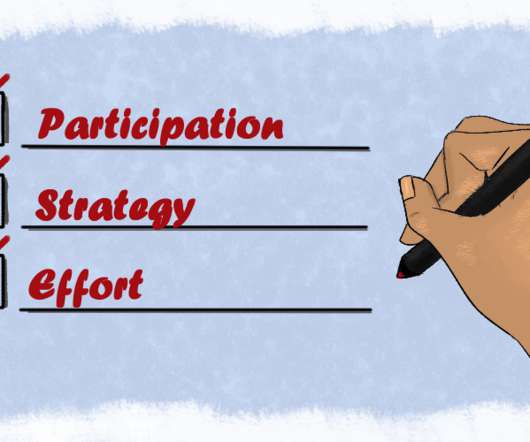Strengthening program evaluation in your nonprofit
ASU Lodestar Center
OCTOBER 16, 2020
ECB involves a series of steps taken by an evaluator (internal or external) to build evaluative knowledge and skills, create a culture of continuous learning and accountability, and make resources readily available. Answer questions like: Did participants’ attitudes, knowledge and skills change? Implement ECB strategies.












Let's personalize your content